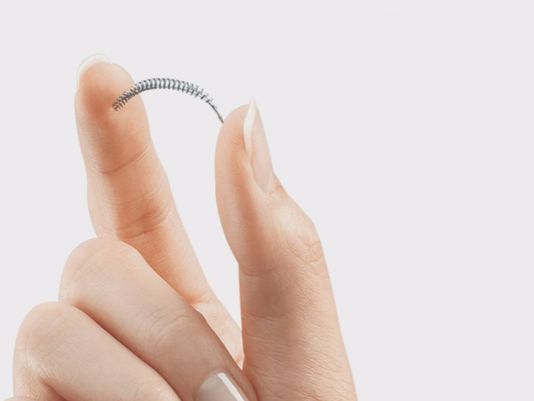WASHINGTON (WUSA9/KSDK) -- The women were looking for permanent birth control but they say what they found was a medical device that robbed them of their health.
The Food and Drug Administration will hold a special meeting on the risks and benefits of a device called Essure. Bayer makes Essure, which is marketed as permanent birth control. We found six women who said they had health problems after having the device implanted.
"I felt like I had the flu all the time," said Jenn Bader, an Essure patient.
"My hair was falling out in huge clumps, just huge," shared Grace Wright, also an Essure patient.
"Memory lapses, lots of memory lapses," added Kristin Cox, a Essure patient.
"Just tired all the time," stated Grace Wright. "Severe lethargy where I had to just make myself to get out of bed."
They told their stories with tears in their eyes. They said they were told Essure would give them quick, cheap, non-surgical birth control. They say the device gave them bleeding, bloating and pain, and forced them to run up thousands in medical bills.
Five of the six women were diagnosed with auto-immune diseases.
"I have RA (rheumatoid arthritis) and Sjogren's," shared Grace Wright.
Jenn Bader said, "I have Hashimoto's."
"Before I went in for removal, they thought I had MS (multiple sclerosis) it was that bad," said Kristin Cox.
Patients nationwide have compiled a list of more than 100 side-effects. They say the Essure inserts, coils made of nickel-titanium and polyester fibers, made them sick. A single insert is placed in each of the two Fallopian tubes. Over three months, scar tissue forms preventing pregnancy. Bayer estimated 750,000 women have had them placed.
The inserts were approved by the FDA in 2002. Currently, more than 5,000 patients have filed adverse event complaints with the FDA. In June, the agency published new information, updating the public about serious new risks, including unintended pregnancy, and cases where the inserts have migrated or moved into the abdomen and pelvis.
This week, the FDA will hold a meeting so outside experts can discuss its safety. Patients Carla Cobb and Kristin Cox plan to be there.
"I don't want anyone else to get this," said Carla Cobb, an Essure patient.
Five of the six women had the inserts removed. Four of them needed hysterectomies.
Jenn Bader brought her surgical notes. She told us, "The right coil was perforated through my tube and the ovary was kind of attached, so he had to take my right ovary as well."
Bayer listed 23 side effects on the original Essure product label in 2002. The risk of possible migration of the inserts wasn't added to the product label until 2014, following additional FDA review. These women say they wish they had known about these risks before agreeing to their procedures years earlier.
"To me, I feel like it's Russian Roulette; you don't know," said Heather Murray.
We spoke with Dr. Edio Zampaglione, vice president for U.S. medical affairs in women's health care and neurology at Bayer, about the stories and complaints.
"We have a lot of empathy for these women," said Dr. Zampaglione. "I'm a physician and OBGYN myself and I can assure you no physician wants to see their patient have adverse events."
Asked whether or not Essure causes auto-immune diseases, Dr. Zampaglione replied, "We're talking much less than point-one percent."
Regarding cases such as Jenn Baders's where the inserts have moved and caused damage in the body, Dr. Zampaglione said migration can happen. "It can occur in maybe one to three percent. A lot of what has to do with migration is where it's placed and how it's placed."
As for all of the other side effects reported by women, the Dr. Zampaglione stated, "The rates of those types of adverse events that you're mentioning are extremely, extremely low and sometimes it's hard to say is it caused by it or not."
All of the six patients we met joined a national Essure problems Facebook group with more than 20,000 members. These are women who say no one is listening to them.
"Nobody believes you because it's all inside," stated Grace Wright.
Bayer will be at that FDA hearing on Thursday.
If you have had problems you think might be connected to using Essure, file a report at the FDA's website or by phone at 1-800-FDA-1088. Bayer is also receiving reports of adverse events by phone at 877-377-8731.
To join other women suffering from Essure problems, visit their Facebook page and website.

